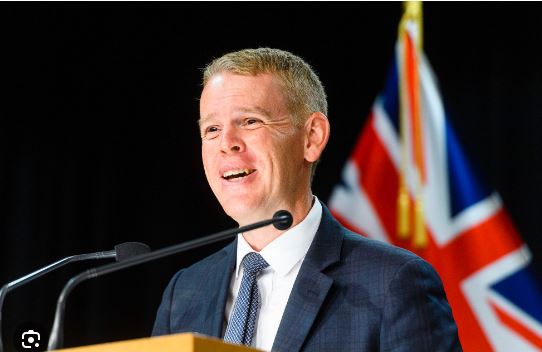
“Today I can announce that I’ll be leading a major trade delegation to China at the end of this month,” Hipkins said.
With stops in Beijing, Tianjin and Shanghai, it will be the first visit to China by a New Zealand leader since the start of the Covid-19 pandemic.
It is not yet clear whether he will meet his Chinese counterpart Xi Jinping, and an exact date has not yet been announced.
Almost a quarter of New Zealand’s export earnings come from China, making it one of the Western nations most dependent on ties with Beijing.
“Our trade links, underpinned by our recently upgraded free trade agreement, have proven incredibly resilient in recent years,” Hipkins said.
He added that ties with China were among the nation’s most “significant, wide-ranging and complex”.
That close relationship, coupled with aggressive Chinese efforts to develop influence and leverage in New Zealand, has long worried Wellington’s allies.
Hipkins expressed hope that the relationship would remain “stable and consistent”, while vowing to raise issues of concern when necessary.
“Where we have human rights concerns we will raise them, where we have concerns around trade or any other policy issue we will raise those,” he said.
New Zealand has in the past been notably less critical of Chinese influence operations overseas — as well as its threats to Taiwan and its crackdowns in Hong Kong, Xinjiang and elsewhere — than its allies in Washington or Canberra.
Hipkins also announced on Monday that he would be visiting Brussels in the coming weeks and would attend a NATO summit in Lithuania — a nod to the importance of New Zealand’s relationships with fellow democracies.
With New Zealand’s economy slowing and an election planned for October, Hipkins is under pressure to juice the economy.
GDP growth is forecast to come in at a slender one percent this year.
New Zealand currently exports large quantities of wood, meat and dairy products to China, but Hipkins said he wanted to diversify exports to include things like video game-related products.
AFP




